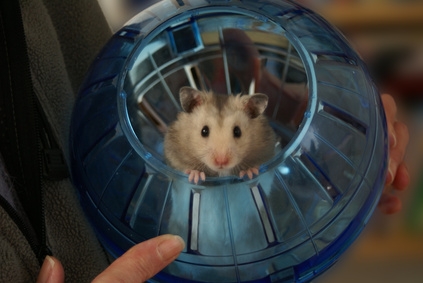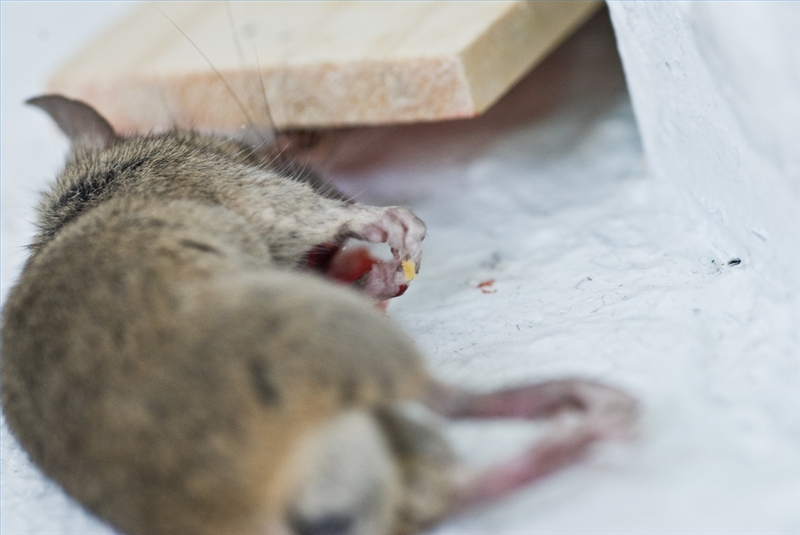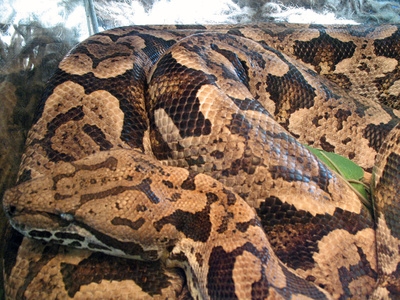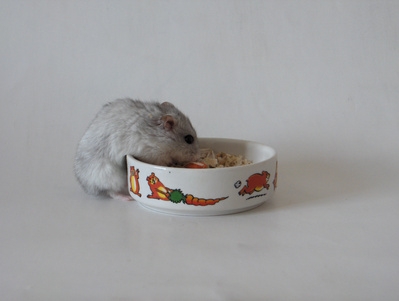
What Happens if Your Cat Doesn't Get Treated for Tapeworm?. Cats become infested with tapeworms usually after ingesting an intermediate host, such as a flea or a rodent, depending on the type of tapeworm involved. A tapeworm can grow up to about 24 inches in length inside the cat's intestines, according to Bayer HealthCare. If infected, your cat will experience discomfort and illness, along with other unpleasant side-effects without treatment.

The three common forms of tapeworms that affect cats include the Dipylidium caninum, Taenia taeniaformis and Echinococcus, according to the Ima Cat Parasite website. The most common of these, Dipylidium caninum, infects fleas, an intermediate host, when the fleas digest the tapeworm eggs. Once a cat ingests the intermediate host, the flea, it then becomes infected by the tapeworm. A cat who ingests a rodent infected with Taenia taeniaformis will contract this type of worm, and those who ingest raw meat may become infected with Echinococcus. Depending on the type of tapeworm your cat ingests, it will experience different side effects.
Once ingested, a cat tapeworm travels along the digestive tract and attaches itself to a cat's intestinal lining by a circular structure called a rostellum, according to the Whitney Veterinary Hospital website. The rostellum contains teeth and suckers that it uses to stay connected to the intestinal wall and absorb nutrients from the cat's system. The tapeworm starts to develop segments, called proglottids, that contain eggs. These segments begin to protrude and fall out of the cat's anus six to eight weeks after becoming infected with the tapeworm. These eggs, once eaten by fleas or rodents, start the infection cycle again.
Continuous infestation with a tapeworm causes a cat to lose weight, have a dull coat or become malnourished due to a lack of nutrients that the tapeworm ingests. Because of the constant shedding of eggs into the environment, the cat will also become infected with multiple tapeworms, which can cause an intestinal blockage, especially in young kittens, according to the Pet Informed website. In addition, the cat will lose its appetite due to abdominal pain or suffer from diarrhea. Other effects of a tapeworm infestation include lethargy, dizziness, vomiting and anal irritation, which usually results in scooting along the ground or intense grooming of the anal area.
Without treatment, tapeworms in your cat's system will continue to grow and thrive, possibly making the cat very ill. The cat will continue to shed tapeworm segments, which will in turn infect fleas, easily ingested by small children. Because tapeworms can infect humans, this can endanger other animals and humans in the home of the infected cat. Prevent infection by using flea control products on the cat and good hygiene to eliminate rodents. Take the cat to a veterinarian for a proper diagnosis of the type of tapeworm and administer any recommended medications, such as praziquantel, that will kill the tapeworms and eliminate them from the cat's system.
 Types of Pet Rodents
Types of Pet Rodents
Types of Pet Rode
Types of Pet Rodents
Types of Pet Rodents
Types of Pet Rode
 Good Bait to Catch a Mouse With a Rat Trap
Good Bait to Catch a Mouse With a Rat Trap
Good Bait to Catch a Mouse With a Rat Trap
Good Bait to Catch a Mouse With a Rat Trap
 What Is the Life Cycle of a California King Snake?
What Is the Life Cycle of a California King Sn
What Is the Life Cycle of a California King Snake?
What Is the Life Cycle of a California King Sn
 How to Make Your Hamster Smell Better
How to Make Your Hamster Smell Better
How to Make Your Hamster Smell Better
How to Make Your Hamster Smell Better
 Types of Hamsters Available at Petsmart
Types of Hamsters Available at Petsmart
Types of Hamsters Available at Petsmart
Types of Hamsters Available at Petsmart
Copyright © 2005-2016 Pet Information All Rights Reserved
Contact us: www162date@outlook.com